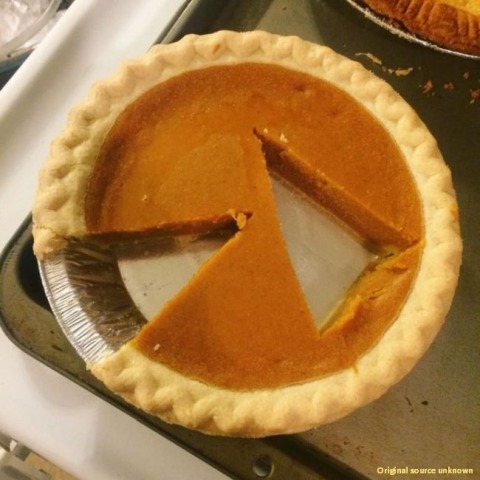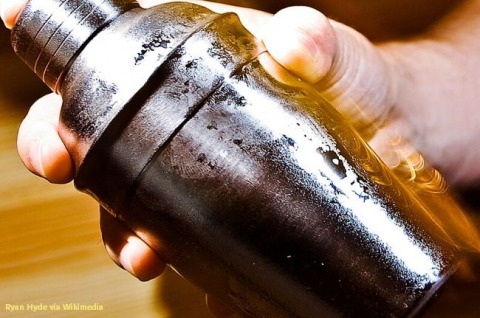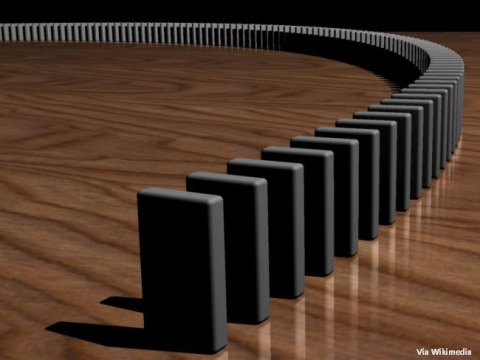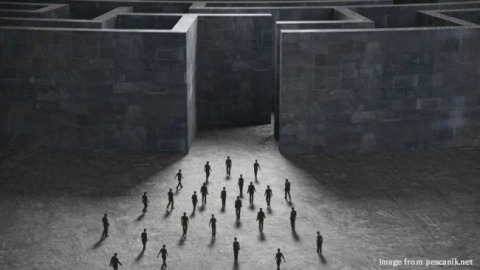
The Underground Thomist
Blog
Harmless VicesMonday, 05-13-2024
Every age imagines that its own favorite capital vices are harmless. Consider one of ours. You know which one. The one we say “doesn’t hurt anyone.” We begin by separating sex from procreation. Along one line of development, this innovation leads to the taking of innocent life, for since conception occurs anyway, we invent justifications for doing away with children; even infanticide is now widely accepted among medical ethicists. Along another line of development, it leads to insensitivity to women, whom we expect to have male patterns of sexual response, and almost to prostitute themselves for male enjoyment. Along still another, it disorders marriage, for the husband and wife no longer see themselves as long-range partners in turning the wheel of the generations. Along yet another, it leads to the abuse of the children who are allowed to live, because live-in boyfriends tend to resent their girlfriends’ babies, and girlfriends are ambivalent about babies that their boyfriends did not father. Especially among the comfortable, those children who are desired are more and more viewed as lifestyle enhancements rather than as expressions of hope for the future. At the other end of the social order are poverty, because single women must provide for their children by themselves; adolescent violence, because male children grow up without a father’s influence; and venereal disease, because formerly rare infections spread rapidly through sexual contact. In all social classes, there develops a Peter Pan attitude in which young men and women are afraid to grow up: Partly because there seems less and less in prospect except toiling for money so that one can have fun when one is not toiling. The blessing of Psalm 128:3, “your wife will be like a fruitful vine within your house; your children will be like olive shoots around your table,” comes to seem, not an expression of a universal aspiration, but almost incomprehensible. Eventually we come to hold our very nature in contempt, as illustrated by the author who declared some time ago in a family planning journal that pregnancy “may be defined as an illness” which “may be treated by evacuation of the uterine contents.” One suspects that even this is not the end. The progression from one thing to another is straightforward; if we do not see it, the reason can only be that we do not want to.
|
The Politics of Demographic ManipulationMonday, 05-06-2024
No one can understand contemporary politics without grasping the fact that politicians don’t just play to the interests of the demographic groups from which they expect support. They also seek to make them bigger. (They also seek to reduce the size of the demographic groups which don’t support them -- for example, by destroying disfavored industries and allowing whole regions to become unlivable – but I’ve talked about that elsewhere.) Historically, the most prominent examples of the sort of thing I’m talking about have been expansions of the suffrage, for example when the “rotten boroughs” were reformed in nineteenth-century England. Although enfranchising previously unenfranchised groups may have unanticipated consequences, it’s a sweet deal if the newly enfranchised groups can be counted on to vote for you. Now, though, politicians of the Left manipulate demographics on a massive scale, working to expand all sorts of groups from which they expect support: Especially illegal immigrants, unmarried women, and people who are financially dependent on the government. The strategy employs a combination of policy and propaganda. Abandon border security. Pay able-bodied people for not working. Preach to young women about the joys of single living, and about what a trap marriage is. Frighten them with tales of Margaret Atwood dystopias. And, of course, promote sexual disorder and family instability, which make everyone less secure and more dependent on the government. While doing all this, pretend that it’s about rights, respect, equality, and compassion. Don’t let anyone get away with saying that it’s about power. For example, you can be sure that for writing the previous paragraph, I’ll be accused of being against young women. In the long run, the strategy doesn’t always work. For example, the descendants of lawful immigrants often resent those who broke the law to get here, and Hispanic voters, whom Democrats used to consider a solid voting bloc, are now shifting rightward as they perceive that the Left is inimical to their beliefs. On the other hand, today’s Leftists no longer think much about the long run, and so far, their efforts to expand the other two demographic groups I mentioned have worked out pretty well for them. Without unmarried women and people who are dependent on the government, the Democratic Party would be nowhere.
|
ShakenSaturday, 04-27-2024
Query:I’ve been shaken in my faith recently by certain thoughts about “last things,” both as physics and as faith talk about them. The natural sciences paint a world that seems pretty meaningless. Now I don’t buy into meaninglessness, but it appears that God was acting through secondary natural causes, and sheer scale of the universe is so massive that we seem to be insignificant. If He acted through natural secondary causes for 13.7 billion years, I can assume that he will continue doing the same. Will there be a church in the year 22 billion AD? The sheer scale of time makes me find that promise difficult to believe. I also have a difficulty picturing Christ coming from heaven and renewing the cosmos – that we on planet earth in this corner of the milky way are front and center to an event of cosmos wide significance. When else has God done something like that? In all those billions of years why didn’t do some miracle here or there that is traceable by modern science (other than the Big Bang)? Physicists talk about the heat death of the universe. That might align with what the bible says about this present world passing away. And I am afraid that is what is going to happen, because the idea that Christ will come in a cloud and judge the living and the dead, and that the cosmos will be renewed, strikes me as unbelievable. I don't think I have the full picture, but this has caused me a lot of distress. Thanks. These doubts were a mighty Lenten penance, let me tell you.
Reply:In one of my favorite cartoons, three young men are hanging out and talking about the Resurrection. The first says, “Okay, so what do you think happened to Jesus’ body after he died?” The second replies, “I think an alien intelligence converted His entire mass into energy and beamed him into space.” The first one responds “I think God raised Him from the dead.” Turning to the third fellow, he asks, “What do you think?” The third fellow points to the second one and says, “I go with the scientific view.” It seems to me that “scientific” analyses of things like what our resurrected bodies will be like and how the new heaven and earth will come about are equally comical. They view as absolutely valid, and apply to God’s own deeds, a set of assumptions which is only contingently valid – assumptions about the relations of mass and energy which apply only at this stage in the history of Creation, and only so long as God does not suspend them by miracle. We know nothing whatsoever about the ways in which God may manage and arrange these things. Take the assumption that when the Scriptures speak of the heavens and earth passing away, they are referring to the heat death of the universe. It’s true that in a closed system, the degree of disorder will always tend to increase, for just the same reasons that my kitchen gets messy over time. My kitchen, of course, is not a closed system, and I enter it from time to time to wash the dishes and wipe the counters. If we assume that the universe is a closed system, then it will eventually reach a point of maximum disorder; it will run down. But if we take seriously the causal activity of God, then the universe is no more a closed system than my kitchen is. So predictions about what will happen to the universe are always conditioned on the assumption that God just lets the natural laws take their course. Usually, He does, or we would never be able to count on the sun rising in the morning. But if He always did, there would never have been a Resurrection. Let me comment on some of your remarks one at a time. “The natural sciences paint a world that seems pretty meaningless.” I understand that you don’t buy into meaninglessness, but I don’t agree that the natural sciences paint such a world. Certainly materialism does, but you don’t have to be a materialist to practice the natural sciences. It isn’t as though scientists had a Meaning Guage they could point at the developing mind of a child, seeing the needle swing over and point to Zero. The instrument which detects meaning is the human mind. “The sheer scale of the universe is so massive that we seem to be insignificant.” You are assuming that bigger things are more significant than smaller ones. C.S. Lewis astutely criticizes this fallacy with the remark that “only a lunatic would think a man six-feet high necessarily more important than a man five-feet high, or a horse necessarily more important than a man, or a man’s leg than his brain.” So why should we think a mountain, a solar system, a galaxy, or a cosmos more important than a human soul? The mountain isn’t made in God’s image. You are. The solar system cannot love, know God, or exercise free will. You can. The cosmos doesn’t even know that it exists. You do. You are immeasurably greater than all these things. Our Adversary wants us to bow down before mere bigness. God wants us to bow down only before Himself. True, a certain awe is appropriate in gazing upon a mountain. But my awe should be for God, who can conceive and make a universe so far beyond my puny powers. It should not be for the mountain as such. “If God acted through natural secondary causes for 13.7 billion years, I can assume that he will continue doing the same.” God does employ secondary causes, but they don’t limit Him. It isn’t safe to assume that He will always and forever act through the same ones in the same way, or to assume that the only ones He uses will be natural causes, or that He will never suspend the operation of natural causes, as He has each time He has performed a miracle. God doesn’t see natural causes lying around and then decide to make use of them. He created them, too. Even concerning the physical universe, it isn’t wise to assume that whatever has happened will continue to happen with no change. There was at first no universe; now there is a universe. There were at first no stars; now there are stars. There was at first no life; now there is life. I am alive now; but I will die. With rational agents, the assumption is even less justified. When you were eight, you probably didn’t think much about falling in love with a girl and getting married; now you do. You once lived in South America; then North America; now another continent. I once repudiated God; now I have returned to faith in Him. The same-old-same-old assumption is still less justified with God Himself. He will do nothing which contradicts His own goodness, but that leaves an awful lot of latitude. Who could have imagined the plan of salvation? “Thus says the Lord,” says the prophet Isaiah: “Remember not the former things, nor consider the things of old. Behold, I am doing a new thing; now it springs forth, do you not perceive it? I will make a way in the wilderness and rivers in the desert. The wild beasts will honor me, the jackals and the ostriches; for I give water in the wilderness, rivers in the desert, to give drink to my chosen people, the people whom I formed for myself that they might declare my praise.” “Will there be a Church in the year 22 billion A.D.?” Who knows? But in the meantime, why be frightened by how far you can imagine the future to be? All of history thus far has been the flick of a gnat’s eyelash. We don’t know how long God will keep the show in motion. We don’t even know how long He will maintain time itself in existence, for time, like space, is something created. Nations fail, and civilizations collapse. Considering how foolish we are, human contrivance couldn’t even have kept the Church in existence until 2000 A.D., yet here we are. Whenever Christ returns, there will be only the Church Triumphant. Until that time, the Church Militant will remain in being, for He has promised that the gates of hell will not stand against it. “I also have a difficulty picturing Christ coming from heaven and renewing the cosmos -- that we on planet earth in this corner of the milky way are front and center to an event of cosmos wide significance?” We are God’s images. Since even a single image of God is greater than the whole cosmos, I don’t have difficulty imagining that everything else was made for rational beings. I don’t necessarily mean just for us. For all I know, the imago Dei is also found on a planet in orbit around Alpha Centauri A, or somewhere in the Lesser Magellanic Cloud. On the other hand, I don’t whether “the heavens” refers just to our heavens or to the whole cosmos. Suppose it turned out that God did make many species of rational creatures, each in its own planet and region of the heavens. Suppose, then, that the renewal of the heavens and the earth were in cosmic terms a local event, which might take place many times in many places. I would marvel to learn this, but I wouldn’t be surprised by it. God is able to do far more than that. “When else has God done something like that?” How do you know that He hasn’t? Why should you even assume that He hasn’t? But if He hasn’t, then why should He have to? “Or why the first 13.7 billion years he did not do some miracle here or there that is traceable by modern science (well I guess the big bang might count).” In fact, the Church rigorously investigates all sorts of alleged miracles, and involves scientists of various kinds in the investigation. For example, it investigates alleged miraculous healings, accepting only those which really happened and cannot be explained in any other way. Quite a few are thrown out! But there seem to be rather a lot of them. It has always seemed to me unreasonable for agnostics to protest that extraordinary claims, such as the Divinity of Christ, require extraordinary evidence -- then throw out extraordinary evidence. There is excellent historical evidence even for that most astonishing of all miracles, the Resurrection itself. Consider the fine article by philosopher Robert Lane Craig, “Contemporary Scholarship and the Historical Evidence for the Resurrection of Jesus Christ.” I concede that we don’t have, say phonographic, photographic, or seismographic data on the Resurrection. But if we are going to throw out historical evidence, then as Craig points out, we may as well not believe that Julius Caesar was really a Roman emperor. “The idea that Christ will come in a cloud and judge the living and the dead, and that the cosmos will be renewed, strikes me as unbelievable.” I don’t even know what the Scriptures mean by Christ coming “in a cloud” – biblical language for things we haven’t directly experienced is usually figurative. But considering the Divine Omnipotence, I don’t see why the Last Things should be unbelievable. Sheer incredulity is not a reason to be incredulous. It is just an impediment to considering the matter. Good heavens, these days we are even expected to believe that scientists will be able to resurrect wooly mammoths from scraps of prehistoric DNA. Then may we not believe that the Lord of Life can raise the dead? Tulane University physicist Frank J. Tipler believes that through the advance of science, intelligent species will literally evolve into God, bringing everyone back to virtual life in a virtual reality. His notion that dependent being could turn itself into absolute Being is so muddled that one hardly knows how to argue with it. Yet not only are arguments of this sort taken seriously by serious people, but the same serious people consider it unserious to think that God is already what He Is. That view is so silly as to beggar imagination. I’ll tell you something I would find unbelievable: That the Almighty God would not vindicate His justice by judging the living and the dead, or that the Omnipotent Creator of the Universe could not make all things new!
|
PassoverTuesday, 04-23-2024
To all my Jewish students, colleagues, friends, and readers, I wish a good and happy Passover today. In view of the great danger and hatred which are being directed against Jewish people all over the world, including, to my sorrow, our own country, I also wish you a safe one. The following passages of Scripture, shared by your tradition and mine, have been quoted in this blog before, but I will never forget them. Now the Lord said to Abram, “Go from your country and your kindred and your father’s house to the land that I will show you. And I will make of you a great nation, and I will bless you, and make your name great, so that you will be a blessing. I will bless those who bless you, and him who curses you I will curse; and by you all the families of the earth shall bless themselves.” Pray for the peace of Jerusalem! May they prosper who love you! Peace be within your walls, and security within your towers! For my brethren and companions’ sake I will say, “Peace be within you!” For the sake of the house of the Lord our God, I will seek your good. (Genesis 12:1-3; Psalm 122:6-9)
|
The Incoherency of MaterialismMonday, 04-22-2024
Query:You’ve argued that if the materialistic view were correct, then our cognitive faculties would have developed solely to maximize the chances of gene transmission, not to maximize truth. In this case we would have no reason to think that our reasoning is reliable, and so we would have no reason to think that any view (including the materialistic view) is correct. But if materialism is not correct, then we don’t have this problem. I agree with you that we are justified in relying on our faculties without being able to show that they are justified, but I have doubts about this bit of reasoning. As you know, C.S. Lewis proposed it, and Alvin Plantinga has been pushing something like it for a long time, but here’s my problem. Let us suppose that we are hard-wired to get things wrong sometimes. Then yes, perhaps the reasoning that leads us to believe in naturalism is infected in this way. But these suppositions are still not enough to get the conclusion that we can’t trust the reasoning that led us to believe in materialism. We need, in addition, an argument to show that the reasoning for materialism is of just the sort that our evolutionary heritage makes problematic.
Reply:I see your point, but if we really were hard-wired to get things wrong sometimes, then I don’t think your suggestion would get the materialist off the hook. You say that all he would need is an argument, P, to show that his argument for materialism, M, is not vitiated by how we are wired. But then wouldn’t he also need an argument, Q, to show that his argument P is not vitiated by it either? He would merely have embarked on an endless regress. As I see the matter, unless we can already be sure that we know something, we aren’t in a position to criticize the faculties by which we know them. For this reason, a classical thinker – say, Aristotle or Thomas Aquinas -- doesn’t demand a critique of the power to know anything before we concede that we know something. Instead he begins by asking, “Granted that we do know something, what must the universe be like for this to be the case?” And it turns out to contain not just matter but other things too. But the materialist holds that nothing is real but matter. So he has to ask a different question: “What reason have I to trust my faculties if materialism is true?” And it turns out that he hasn’t any. So although a classical thinker is justified in relying on his faculties without being able to show that they are justified, a materialist who makes such a claim for himself is trying to have his cake and eat it.
|
Spanking -- A Grain of SaltMonday, 04-15-2024
Query:I have been brought up under the impression that the Bible not only permits, but even glorifies spanking of naughty children. It is implied that the punishment is an act of love, as it will be good for the child. It is even said that one who does not spank, hates his child. Certainly this is the prima facie teaching of the book of Proverbs: “He who spares the rod hates his son, but he who loves him is diligent to discipline him.” “Discipline your son while there is hope; do not set your heart on his destruction.” “The rod and reproof give wisdom, but a child left to himself brings shame to his mother.” The letter to the Hebrews seems to go even further by teaching how God disciplines us in an analogous way as our earthly fathers have, with the same goal of harvesting righteousness through painful punishment: “And have you forgotten the exhortation which addresses you as sons? – My son, do not regard lightly the discipline of the Lord, nor lose courage when you are punished by him. For the Lord disciplines him whom he loves, and chastises every son whom he receives. It is for discipline that you have to endure. God is treating you as sons; for what son is there whom his father does not discipline? ... For the moment all discipline seems painful rather than pleasant; later it yields the peaceful fruit of righteousness to those who have been trained by it.” This makes it seem like parents spanking their children would be actually following the example of the perfect love of God. However, this teaching seems to be in direct contradiction with the recent findings of social science. Could you comment on the scientific validity of such studies? If the science is right, then is the Scriptural teaching mistaken? Or have I misunderstood it? If so, why is it so easy to get it wrong?
Reply:I take the texts you mention to mean, broadly, that parents who do not discipline their children are asking for trouble later on. From the fact that some of the texts refer to specific forms of discipline, I don’t understand the texts as requiring the employment of just these modes of discipline. In a culture in which, say, a switch is the most common way to punish disobedient children, it would be natural to refer to discipline in general by the phrase “the switch.” We speak that way even in contexts in which it is obvious that we do not intend to be taken literally; for example, we may say that a worker was “taken to the woodshed” by his supervisor, even though no workers are literally taken to any woodsheds. So, if I am reading the texts correctly, it would not be a violation of biblical teaching for a parent to forgo corporal punishment if another form of punishment turned out to work better with his child. The point is that discipline is neglected only to the child's peril. As to the empirical question -- how well does corporal punishment work? -- I don’t know, but I would hesitate to leap to broad conclusions from recent research when I don’t know whether they controlled for cultural expectations, or even what they meant by corporal punishment. Beating up children is obviously wrong. Giving a child’s butt a whap or two with a paddle – as was done with miscreants in my high school – is a very different thing. My own experience makes me a bit suspicious, just because different children respond differently to the same punishments. Some children do respond badly to spanking. Some don’t. There are some surprises with older people too. It would never happen today – but I know a man, a retired city planner, who blesses the day one of his college ROTC instructors grabbed him, took him over his knee -- and swatted his behind for not taking his studies seriously! To be a young adult, and yet be treated like a spoiled child, shocked him out of a deepening pattern of slack and irresponsible behavior. I would never do that to a student, nor would I ever recommend doing it. (Hear that, O my administrators?) I wouldn’t have reacted as he did either. But he swears that it changed his life. Interesting. And as to resentment, do you know what? My own students sometimes resent me just for giving them grades less than B for their essays. Yet I haven’t found that it works better to give them all As.
|
EsotericismMonday, 04-08-2024
For members of a certain esotericist school of thought, Exhibit One is Plato’s Republic. They take to an extreme the commonplace observation that Plato makes his character Socrates speak ironically. According to them, the Republic hides Plato’s disturbing real teaching behind a comforting, conventional teaching that does not even come close to representing what he actually believes. We are told that all the great philosophers wrote in this way. But a disturbing esoteric teaching hidden behind a comforting surface teaching is the opposite of what we actually find. Socrates puts his most radical proposals front and center: Community of property, community of wives, “noble” lies, and the same way of life for men and women. What the esotericists consider his hidden teaching -- that since a perfect regime is impossible, we ought to practice moderation – is not subversive. So what esotericists say publicly contains a contradiction. If I reasoned about them as they reason about great thinkers – which I think is how they would like to be viewed – then I would regard the contradiction as a deliberately planted clue that it is they, not the ancients, who write esoterically. The reassuring, conventional counsel of moderation is just a cover story, and their real view is radical and disturbing. But of course that couldn’t be true, could it? Related:LabyrinthSo-Called Self-Ownership
|






